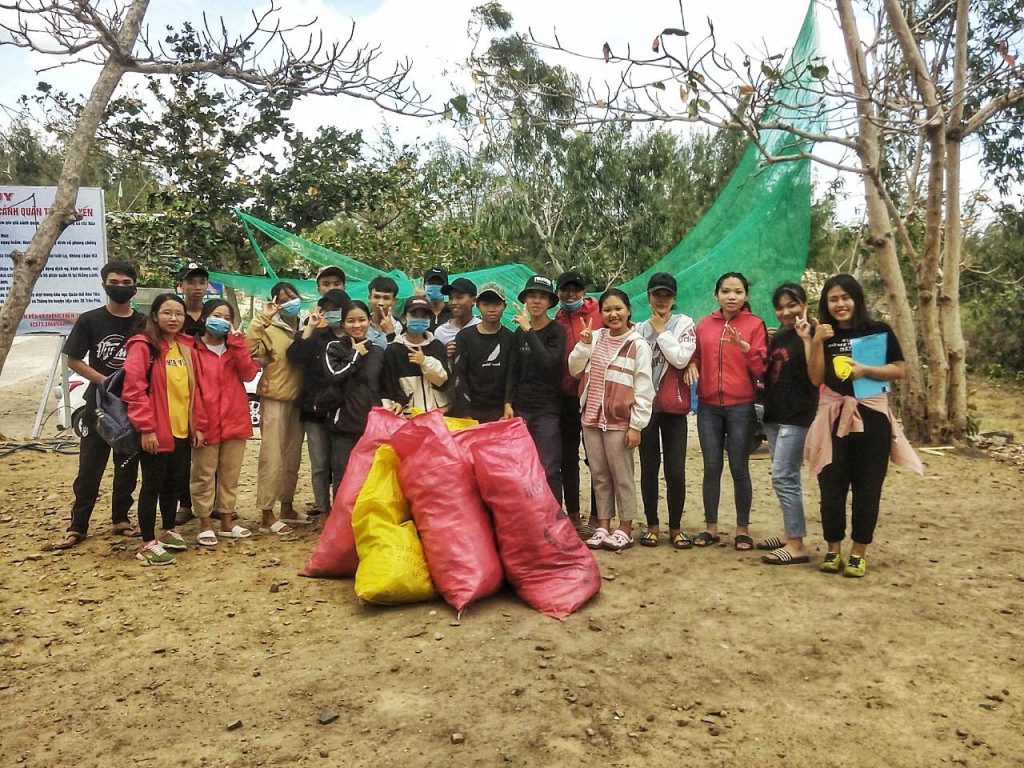
- Project Title:
- Building Vietnam's Zero Waste Movement Through Coastal Strongholds
- Strategy 1:
- Establish zero waste models at coastal pilots and then adjacent cities
- Location:
- Phu Yen
- Period:
- 3 years (2019 - 2021)
Project summary:
The Project is in Zero Waste Network in Vietnam aims at " Zero Waste" in 5 pilot areas in Vietnam (Cat Ba / Ha Long, Xuan Thuy, Cu Lao Cham, Da Nang, Phu Quoc). However, after working with Phu Quoc’s partners, the project decided to select another coastal area for the 5th site. After studying and surveying in Phu Yen in early April, GreenHub proposed to choose Phu Yen province, instead of Phu Quoc.
Phu Yen is a coastal province, in South Central Vietnam, 560 km. from Ho Chi Minh city. The province has a total population of 899,400 people, in which almost 50% are women (General Statistics Office, 2018). Phu Yen is a coastal province in the South Central Coast with a coastline of 189 km. The are many bays, beaches, lagoons, coastal lagoons in Phu Yen. Many places are untouched, plant and animal biodiversity are abundant, not much affected by human and environmental pollution. These beauties and values has gradually turned Phu Yen to be an emerging attractive destination, particularly among domestic tourists as well as investors.
Phu Yen’s economy is rapidly growing, with the latest annual growth rate of 8.2% (Phu Yen People’s Committee Report, 2018), and directly increasing solid waste, in both coastal, urban and rural areas. Statistics of the Department of Natural Resources and Environment (DONRE), show that the province disposes 510 tons of waste daily, and only two urban areas including Tuy Hoa city and Song Cau discharge almost 40% with 130 tons and 65 tons per day. However, only 76% of waste is collected, and a part of this is treated correctly to minimize environment impact. The remainder is dumped and piles up at unofficial/informal landfills and treated by burning or being buried, both with negative environmental impacts for the province.
Importantly, the province leadership (People’s Committee) in its “Social-Economic Development Plan to 2020, Vision to 2030” identifies tourism as the key industry for provincial economic development, with a target to attract over 2 million national and international tourists by 2020. This sector is expected to grow robustly in the next few years, but associated with a significant increase in solid waste from tourist visits and service providers.
For economic development associated with nature conservation and environmental protection, Phu Yen province necessaries to have waste management policies to build a sustainable economy in the future. The Chairman of Phu Yen province find this potential challenge and really want to take actions in advance. Recent communication between GH and Phu Yen’s provincial authority has revealed a great possibility for promoting collaboration between this organization and key local stakeholders in order to develop an integrated framework for better coastal waste management.
Specific objectives of the project within three years, the pilot model in Phu Yen province reduces 25% of local waste (selected households, restaurants, hotels and tourism sites). These methods are developed and implemented by NGOs in the Zero Waste Vietnam network alliance in coordination with local authorities and the participation of selected objects. In the first year, a waste baseline will be developed based on collaborative survey/audit/data collection/training activities that help to understand the whole/current waste system, and then support/facilitate the province to develop a waste management action plan based on baseline findings and recommendations. From the 2nd and 3rd year of the project, the NGOs of VZWA will support the province to implement and monitor relevant actions, including selected zero-waste demonstration with selected coastal target groups and partners.
Outcome: A baseline of solid/plastic waste in Phu Yen produced, enabling the development of solutions and monitoring their implementation
Activity #1: Coordinate with local authorities to identify the locations and select the location of the project.
Activity #2: In-depth survey of domestic waste management of restaurants, hotels and households, Tourism sites at the project location.
- Waste audit for at least 60 households in one commune/ward.
- Waste audit at 2 big restaurants, 3 average restaurants and 3 small restaurants.
- Waste audit 2 big hotels, 3 medium hotels and 3 small hotels.
- Auditing time continuously for 1 week.
- Survey at least 1 tourism sites.
- Training and data collection of waste in one coastal area in Tuy Hoa city.
Activity #3: Organize "Zero Waste" dialogue to report waste audit results at restaurants, hotels and households, assess the current situation and propose solutions Zero Waste, the coping these findings to provide recommendations for action-plans on waste management.
